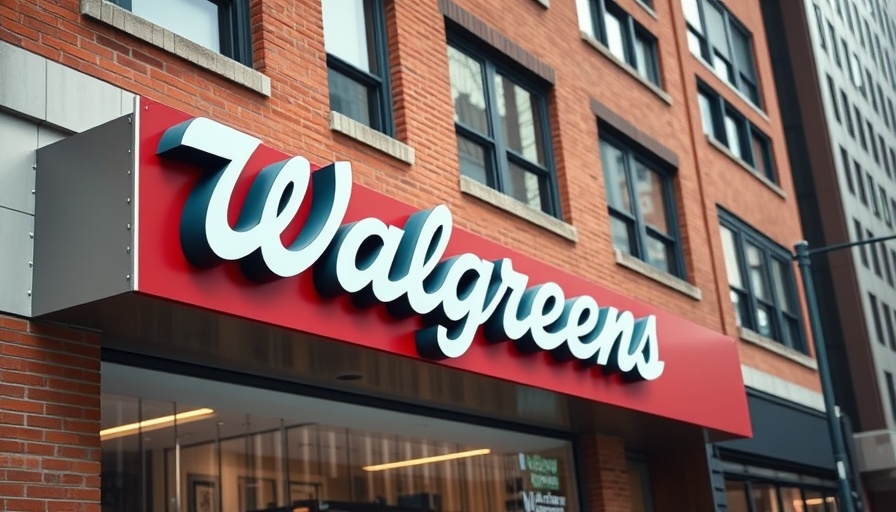
Understanding Walgreens' Opioid Settlement: A Significant Step Forward
In a landmark decision that echoes through the healthcare industry, Walgreens has agreed to pay up to $350 million to settle serious allegations made by the Department of Justice (DOJ). The accusations center on the pharmacy chain's role in the opioid epidemic, asserting that Walgreens knowingly filled prescriptions for excessive amounts of opioids and failed to adhere to the necessary guidelines for validating those prescriptions.
The Roots of the Allegations
According to the DOJ, from August 2012 to March 2023, Walgreens pharmacists were pressured to expedite the dispensing of medications without ensuring that the prescriptions were legally valid. The lawsuit highlights a concerning pattern where prescriptions that should have raised red flags were nonetheless filled, contributing significantly to the ongoing opioid crisis. Research shows that mismanaged prescriptions can lead to addiction and even overdose, emphasizing the severity of Walgreens' violations.
The Financial Implications and Future Commitments
The settlement consists of a $300 million payment to the federal government, with an additional potential $50 million payment should Walgreens be sold or merged before 2032. Such financial commitments are not just punitive but also serve as a cautionary tale for other pharmacy chains regarding prescription oversight and regulatory compliance.
Operational Changes: A New Chapter for Walgreens
In addition to the financial settlement, Walgreens is obligated to implement new compliance measures in collaboration with government bodies like the Drug Enforcement Administration (DEA) and the Office of Inspector General (HHS). These measures include enhanced training for pharmacy workers and strict validation procedures for prescriptions, aimed at preventing future infractions.
Impact on Community Health and Well-being
The repercussions of Walgreens' actions are not confined to financial penalties; they directly impact community health and wellness. The settlement highlights the importance of pharmacies acting as responsible guardians of public health by ensuring that medications, especially controlled substances, are dispensed responsibly. As communities grapple with the fallout from the opioid epidemic, this settlement represents a crucial step toward accountability and improved health outcomes.
A Broader Perspective: The Opioid Epidemic
This case brings to light the broader issue of the opioid crisis, which has claimed thousands of lives and profoundly affected community health across the nation. As pharmacies play a vital role in medication distribution, their oversight practices can either contribute to or mitigate the effects of addiction. The settlement may inspire other pharmacies to examine their own practices to ensure that they do not inadvertently contribute to a public health crisis.
What This Means for Consumers
For consumers, this case serves as a reminder of the importance of vigilance and empowerment in healthcare decisions. Patients should feel encouraged to understand their prescriptions better, question their healthcare providers, and be aware of potential red flags regarding controlled substances. It highlights the community's role in advocating for health and wellness, pushing for responsible practices that safeguard public health.
Conclusion: A Call for Vigilance in Healthcare
As Walgreens navigates through these challenges, the onus lies not only on large pharmacy chains but also on consumers and healthcare professionals to ensure the integrity of prescribing practices. Communities must engage in constructive conversations around drug prescriptions, accountability, and health this settlement represents not just a financial compromise but also an opportunity to foster a culture of wellness.
As we reflect on this situation and its implications, it's vital to stay informed about community health initiatives and events, especially those focusing on opioid use and prevention. Emphasizing health and wellness in our communities moves us closer to optimal wellbeing and resilience against future health crises.
 Add Element
Add Element  Add Row
Add Row 




Write A Comment